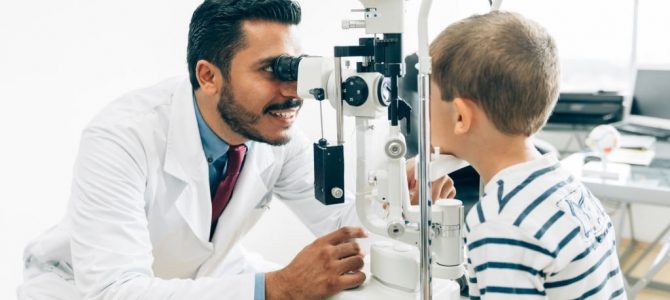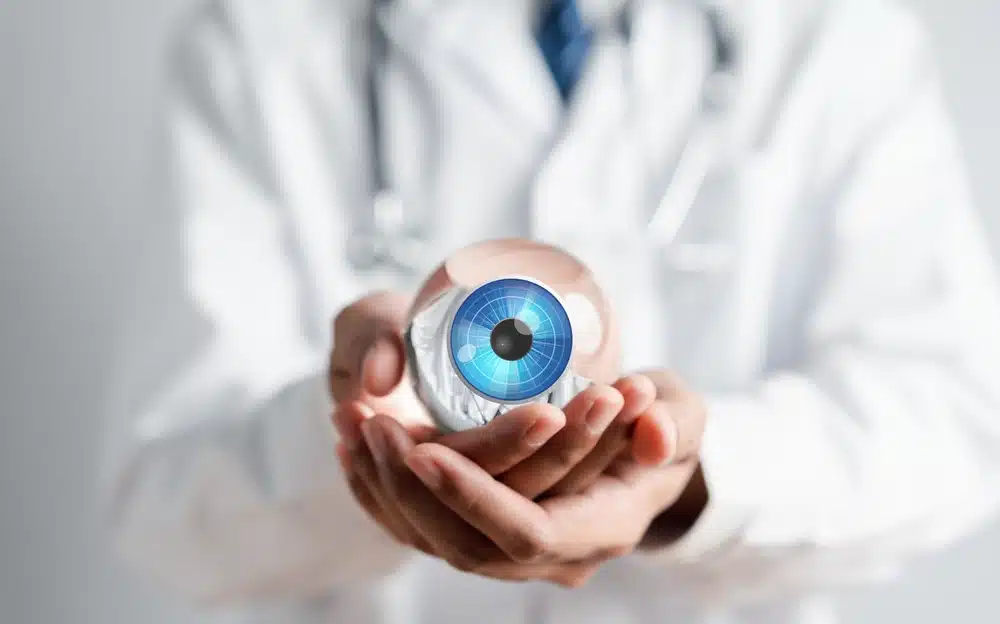Is Refractive Surgical Treatment Right for You? Elements to Consider for Better Eyecare
In the world of eye treatment, the decision to go through refractive surgical treatment is a substantial one that requires thoughtful consideration. From the ins and outs of one's ocular health and wellness to the complexities of individual assumptions and everyday routines, each element holds importance in the broader landscape of refractive surgery candidateship.
Eye Wellness Assessment
When thinking about refractive surgical treatment, an extensive eye health evaluation is crucial to analyze the viability of the procedure for each person. eye center andalusia. This examination involves a collection of examinations and evaluations conducted by an eye treatment expert to identify the total health and wellness of the eyes, the presence of any kind of hidden conditions, and the security of the refractive error
Throughout the assessment, numerous aspects are thought about, such as the person's medical background, present eye prescription, corneal density, pupil dimension, and tear film top quality. These evaluations aid to determine any kind of contraindications to refractive surgical treatment, such as corneal abnormalities, cataracts, or without treatment eye infections. Additionally, the assessment assists to take care of client expectations pertaining to the potential outcomes of the surgical procedure based on their special eye features.
Ultimately, the eye wellness examination is important in making sure the safety and security and effectiveness of refractive surgery, as it offers useful understandings right into the person's eye health status and helps identify the most appropriate therapy choices for accomplishing optimum aesthetic end results. (eye doctors in andalusia)
Lifestyle Assessment
A complete lifestyle analysis is essential in determining the viability of refractive surgery for a person's visual modification needs. Way of living elements such as line of work, pastimes, and day-to-day activities play a critical function in the decision-making procedure concerning refractive surgical procedure.
In addition, way of life behaviors such as sporting activities involvement, exterior tasks, and even skin care routines can affect the recovery process and general success of refractive surgical procedure. As an example, people that engage in get in touch with sporting activities might need to take additional preventative measures to protect their eyes during the healing duration. Furthermore, people with considerable sun exposure may need extra post-operative treatment to protect against problems. By carrying out a detailed way of living analysis, eye treatment professionals can tailor their recommendations and treatment plans to meet the distinct requirements of each individual, inevitably bring about boosted aesthetic end results and satisfaction.
Assumption Alignment

Establishing reasonable expectations entails thorough pre-operative conversations between the client and the ophthalmologist. The cosmetic surgeon should transparently connect the prospective risks, advantages, and restrictions of the procedure (eye center andalusia). Clients need to understand that while numerous people accomplish 20/20 vision or better adhering to refractive surgical treatment, some may still call for glasses for certain tasks like reading or driving at night. Handling these expectations assists avoid dissatisfaction and discontentment post-surgery, leading to a much more positive general experience for the patient.
Risk Analysis

Elements that might increase the danger of problems include age, specific clinical conditions like autoimmune diseases, unsteady vision prescription, slim corneas, and unrealistic patient assumptions. Additionally, picking a competent and skilled specialist, following pre and post-operative treatment instructions vigilantly, and divulging any kind of pertinent medical background can assist mitigate dangers.
To decrease the likelihood of issues, eye doctors perform comprehensive pre-operative examinations to recognize any kind of contraindications to surgery. They also talk about the prospective dangers and advantages with people throughout the consultation process. By participating in open communication and shared decision-making, both the client and the ophthalmologist can work together to identify if refractive surgical treatment is the ideal option based on private danger profiles and desired outcomes.
Consultation Significance
Considering the crucial role of informed decision-making in assessing threats and possible difficulties in refractive surgical procedure, the examination process holds significant importance in guiding people in the direction of ideal results. During the appointment, the eye doctor assesses the client's eye health, refractive mistakes, and general suitability for surgical procedure. This first evaluation is essential in determining one of the most appropriate procedure for each and every individual, considering variables such as corneal density, pupil dimension, and existing eye problems.
Furthermore, the appointment offers as an opportunity for individuals to discuss their assumptions, worries, and any inquiries they may have pertaining to the surgical treatment. Clear interaction between the surgeon and the person is vital to ensure sensible expectations and a detailed understanding of the potential threats and benefits entailed.
Additionally, the examination allows the cosmetic surgeon to clarify the different medical alternatives offered, their corresponding results, and the post-operative treatment required. This extensive conversation empowers clients to make knowledgeable choices about their eye care, check my reference bring about better fulfillment and end results post-surgery.
Conclusion
To conclude, people considering refractive surgery must undertake an extensive eye health and wellness evaluation, examine their way of living behaviors, align their expectations with possible end results, analyze the affiliated threats, and prioritize consultations with eye treatment professionals. These variables play a vital function in figuring out the suitability of refractive surgical procedure for every person, making certain optimal outcomes and fulfillment with the procedure.
Individuals taking into consideration refractive surgical treatment read this post here typically have high assumptions relating to the results, expecting ideal vision without the need for glasses or contact lenses. While refractive surgery can substantially boost vision and minimize reliance on visual help, it is critical for individuals to comprehend that results might differ based on private factors such as the level of refractive mistake, corneal thickness, and overall eye wellness.
By engaging in open communication and shared decision-making, both the ophthalmologist and the patient can function together to determine if refractive surgical procedure is the ideal choice based on specific danger profiles and wanted outcomes.
Taking into consideration the important function of educated decision-making in examining risks and possible problems in refractive surgery, the examination process holds substantial significance in guiding individuals towards ideal outcomes. During the consultation, the eye doctor evaluates the individual's eye you can find out more health, refractive errors, and total suitability for surgical treatment.